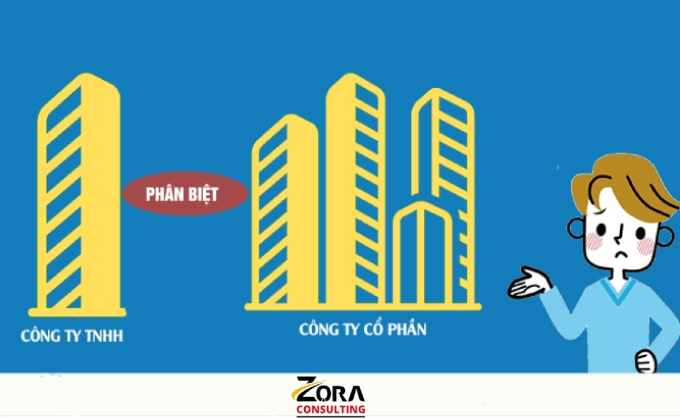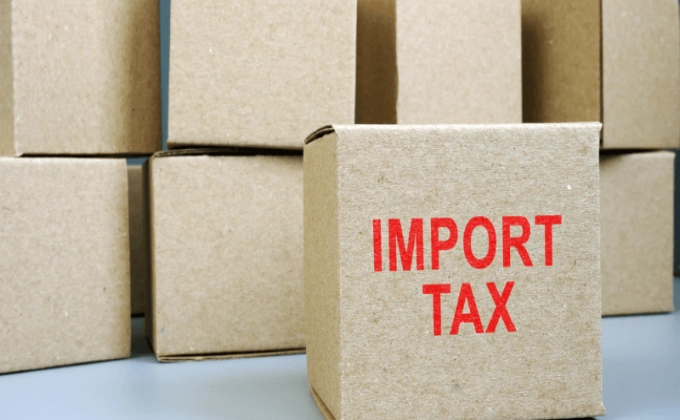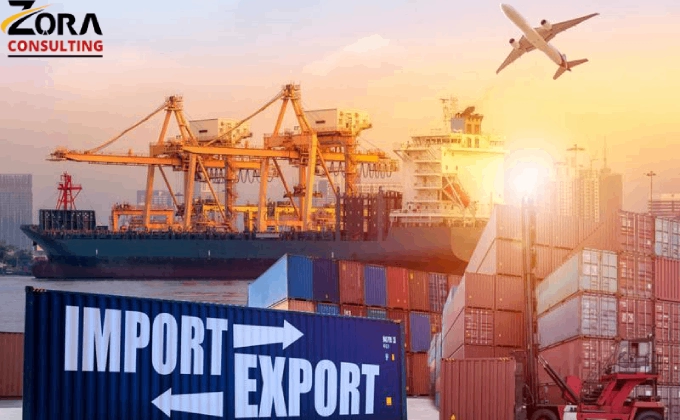Tin tức & Bài viết
Understanding Tax Rates in Vietnam: A Comprehensive Guide
Nội dung chính
To calculate and report your taxes, you must know the tax rates in Vietnam. There are different types of taxes that you may have to pay in Vietnam. These taxes are categorized as personal taxes that apply to an individual's income and taxes that apply to business revenues.
Similar to other countries, Vietnam's tax rates vary based on several factors. While there are no area-specific tax rate differences, there are, however, criteria set in place to determine how much an individual or business should pay in terms of taxes. Not to mention, the tax rate in Vietnam may vary for residents and non-residents, even if they have similar incomes.
So, if you are planning on working in Vietnam or starting a business venture here, it is essential to understand the tax rates first. Zora Consulting has created this helpful guide to explain all the different tax rates Vietnam has. By the end of this article, you should be able to tell which tax rate applies to you. Or you can always contact us to learn more about the correct tax rates for your case. With that said, keep reading to know everything about the tax rates in Vietnam.
Why is it to use the correct tax rates when filing tax in Vietnam?
Using the correct tax rates when filing for taxes in Vietnam means you are paying the right amount of tax. Here are some additional reasons why you should only use the correct tax rate when collecting your payable taxes in Vietnam:
Legal compliance: One of the biggest reasons why you should make sure you use the right tax rate is to ensure compliance. Not reporting your taxes correctly can result in fines and legal issues, whether you are an individual or a business.
Something as simple as using the correct tax rate when reporting your taxes can help ensure compliance with Vietnamese financial laws.
Access to incentives: Paying your taxes correctly makes you eligible to access various incentives the Vietnamese government offers to businesses. Some common incentives you can avail as a business owner in Vietnam by filing your taxes correctly include CIT incentives called preferential tax rates and tax holidays.
However, if your tax reports aren't calculated correctly using the applicable tax rate, you risk losing your compliance status and may miss out on incentives. These incentives can boost your business growth in Vietnam, so paying attention when reporting your taxes is a good idea.
Uninterrupted work/operations: Whether you are an individual or a business operating in Vietnam, using correct tax rates when reporting your taxes means you can continue your work without interruptions.
On the other hand, if you are not reporting your taxes correctly based on the correct tax rate, you are at risk of disruptions in your work and business.
What are the tax rates in Vietnam for different types of taxes?
As mentioned earlier, there are different types of taxes in Vietnam, including those for businesses and individuals. Here is a list of rates for different kinds of taxes in Vietnam that you should know about:
1. Personal income tax rates (For employment income):
For residents:
| Annual employment Income | PIT Rate |
| 0 to 60 million VND | 5% |
| 60 to 120 million VND | 10% |
| 120 to 216 million VND | 15% |
| 216 to 384 million VND | 20% |
| 384 to 624 million VND | 25% |
| 624 to 960 million VND | 30% |
| Above 960 million VND | 35% |
Non-residents: As a non or foreigner, your income tax rate in Vietnam will be fixed at 20% of the employment income earned in the country.
2. Personal income tax rates (For non-employment income):
| Type of income | Tax rate for residents | Tax rate for non residents |
| Business income | 0.5 to 5% | 1 to 5% |
| Sale of shares | 0.1% | 0.1% |
| Sale of real estate | 2% | 2% |
3. Corporate income tax rate (For companies and organizations)
Vietnam's Corporate income tax rate has been set at 20% of the company's profits. A 20% CIT rate is common for both foreign and local companies.
4. Value-added tax rate: Value added tax rate in Vietnam applies to goods and services used for production, consumption, and trading. VAT has different tax rates, as listed below:
| Exported goods/services | 0% |
| Essential goods (Books, unprocessed foodstuffs, medicine and medical equipment etc.) | 5% |
| Goods and services not subject to 0% and 5% tax rates | 10% |
5. Special sales tax rate:
Special sales tax is applicable to goods and services that are imported or non-essential. The rates of SST for different goods are as follows:
| Cigar/Cigarettes | 75% |
| Beer | 65% |
| Automobiles with less than 24 seats | 10-150% |
| Motorcycles with more than 125cm3 engine size | 20% |
| Petrol | 7-10% |
6. Foreign contractor tax rate: This type of tax is referred to as Foreign Contractor Withholding Tax (FCWHT) because it is often paid by the payer rather than the foreign contractor.
The FCWHT is paid as CIT and VHT combined. Here are the CIT and VHT rates applicable to FCWHT in Vietnam:
| Type of goods and service | VAT rate for FCWHT | CIT rate for FCWHT |
| Services | 5% | 5% |
| Goods that are supplied to Vietnam | 0% if VAT is paid upon import of goods | 1% |
| Construction, material, or equipment | 3% | 2% |
| Transport services |
3% |
2% |
| Restaurant, hotel or casino management |
5% |
10% |
Conclusion
So there you have it. This article has listed the rates for all the major types of taxes you can expect to pay in Vietnam. While paying taxes as an individual can be simple, it becomes challenging to account for the many types of taxes that apply to businesses, services and goods.
At Zora Consulting, we specialize in helping foreign businesses maintain tax compliance within Vietnam. It can be a hassle to account for all the tax rates that may apply to a company, as they vary based on several factors. Our experts at Zora Consulting can ensure that all your taxes are calculated based on accurate tax rates. We can also help you with proper accounting and record-keeping to make reporting taxes more accurate.
Contact us now to get your company's taxes reported at the correct rates.
Bài viết liên quan

Understanding Vietnamese Tax System: A Guide for Foreign Investors
Xem thêm

Phát triển kinh doanh tại Việt Nam: Hành trình đầy hứa hẹn cùng Zora Consulting
Xem thêm

Khởi Nghiệp tại Việt Nam: Cơ Hội và Thách Thức
Xem thêm

Thành lập công ty nước ngoài tại Việt Nam: Các điều kiện cơ bản
Xem thêm

Phân biệt công ty Cổ phần và Công ty TNHH
Xem thêm

Cơ hội mới: Đầu tư vào Việt Nam trong lĩnh vực Fintech với Zora Consulting
Xem thêm

Giấy phép Lao động cho người nước ngoài tại Việt Nam: Các thủ tục cần thiết
Xem thêm

Comprehensive Guide to Vietnam Company Formation and Registration
Xem thêm

Thương mại điện tử tại Việt Nam – Cơ hội tiềm năng cho nhà đầu tư nước ngoài
Xem thêm

The Role of CPAs and Accountants in Vietnam: Ensuring Compliance and Financial Stability
Xem thêm

Tổng quan về thuế nhập khẩu tại Việt Nam
Xem thêm

Tổng hợp các bước thành lập doanh nghiệp Việt Nam
Xem thêm

Thủ tục xin giấy phép thành lập trung tâm tiếng Anh có vốn đầu tư nước ngoài tại Việt Nam
Xem thêm

Thành lập doanh nghiệp nước ngoài lĩnh vực bán lẻ tại Việt Nam
Xem thêm

Thủ tục xin giấy phép An toàn vệ sinh thực phẩm cho nhà hàng, khách sạn
Xem thêm

Thành lập doanh nghiệp 100% vốn nước ngoài
Xem thêm

Người nước ngoài được thành lập công ty du lịch tại Việt Nam không?
Xem thêm

Thành Lập Doanh Nghiệp Nước Ngoài Trong Lĩnh Vực Xuất Nhập Khẩu Tại Việt Nam
Xem thêm

59 Ngành Nghề Kinh Doanh Có Điều Kiện Đối Với Nhà Đầu Tư Nước Ngoài
Xem thêm

Các thủ tục sau khi doanh nghiệp đi vào hoạt động mà bạn cần biết
Xem thêm







